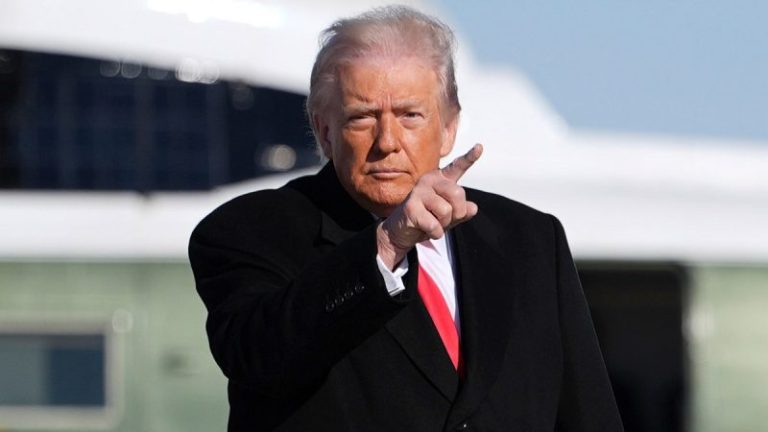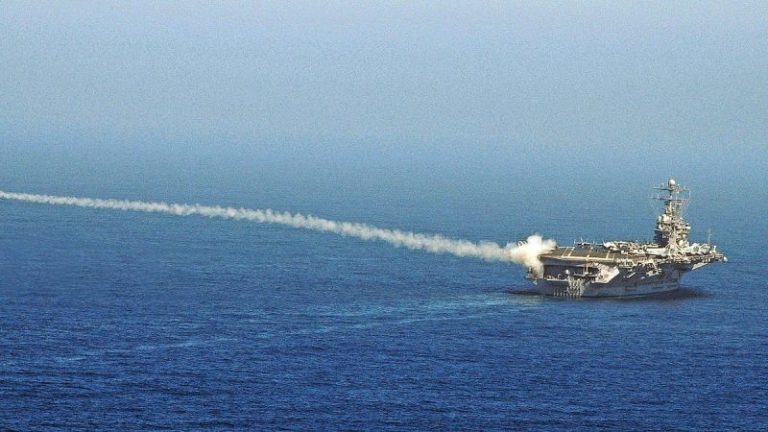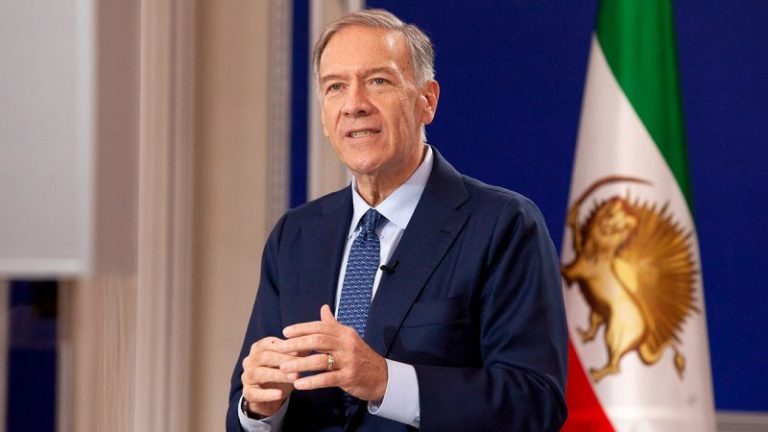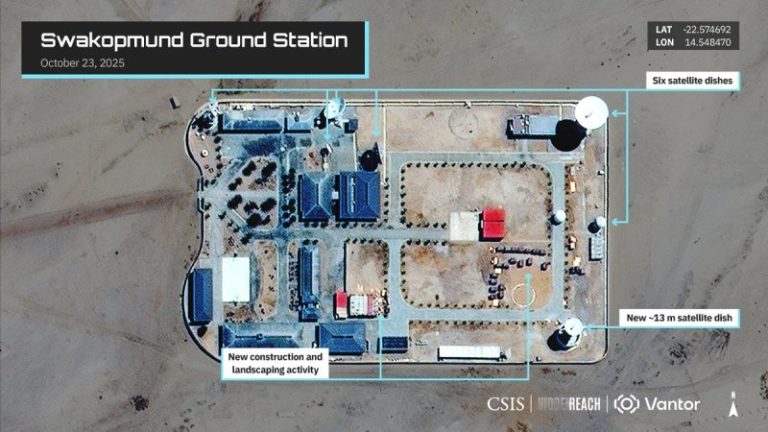The Government of Ontario, Canada, announced on Tuesday (January 13) that it was accelerating permitting and development on Canada Nickel Company’s (TSXV:CNC,OTCQX:CNIKF) Crawford nickel project near Timmins, as part of its “One Project, One Process” framework.
The designation will help the project attract C$5 billion in investment funding to develop the mine and a nickel processing plant that will provide materials for the stainless steel and electric vehicle markets.
Once complete, the mine will create 1,300 jobs and support an additional 3,000 workers throughout the community and supply chain.
On the international stage, Canadian representatives, including Prime Minister Mark Carney, travelled to China this week for a four-day visit in hopes of improving relations between the two countries.
Among the results of the visit was a softening of tariffs on Chinese electric vehicles entering Canada. Under the new terms, Chinese companies will be allowed to sell up to 49,000 automobiles per year in Canada at a 6.1 percent tariff. In exchange, China has loosened its tariffs on Canadian canola to 15 percent, and removed all tariffs on canola meal, lobsters, crab and peas.
Additionally, the Canadian government announced on Friday (January 16) that it had reaffirmed a memorandum of understanding with China’s National Energy Administration. The MoU sees both countries strengthen cooperation over energy initiatives and advance dialogue over the energy transition; conventional, clean and nuclear energy; and uranium resources.
South of the border, on Sunday (January 11) US Federal Reserve Chair Jerome Powell issued a rare statement on his relationship with the Trump administration when he revealed that he had received subpoenas from the Department of Justice.
According to his remarks, US Attorney and Trump appointee Jeanine Pirro had opened an investigation into Powell’s oversight of the Federal Reserve’s building renovation project.
Although no charges have been laid, the investigation illustrates a deepening rift between the Fed Chairman and the Trump administration. Powell said he believes the investigation is related to the administration’s frustration over what it claims is a slow pace of interest rate cuts.
The president has previously stated his desire to replace Powell as the Fed’s chair, but because the Fed is independent, he can only do so with the support of Congress. While Powell’s term as chairman ends in May, his term as a Fed governor doesn’t end until January 2028, which may stymie Trump’s plan to gain greater control over the agency and its policy direction.
For more on what’s moving markets this week, check out our top market news round-up.
Markets and commodities react
Canadian equity markets were on the rise this week.
The S&P/TSX Composite Index (INDEXTSI:OSPTX) gained 1.8 percent over the week to close Friday at 33,040.55, while the S&P/TSX Venture Composite Index (INDEXTSI:JX) fared even better, rising 4.28 percent to 1,091.13. The CSE Composite Index (CSE:CSECOMP) also gained ground, rising 2.61 percent to close at 188.29.
The gold price continued to trade at all-time highs this week, reaching US$4,639 per ounce amid heightened tensions in the Middle East over protests in Iran and as the US contemplated military involvement. Overall, it gained 2.32 percent during the week, closing the week at US$4,582.81 per ounce on Friday at 4:00 p.m. EST.
The silver price performed even stronger, trading above US$93 per ounce on Wednesday at new highs. Although the price pulled back slightly by the end of the week, it still posted a weekly gain of 16.08 percent, closing Friday at US$89.36.
In base metals, the Comex copper price recorded a 2 percent drop this week to US$5.88.
The S&P Goldman Sachs Commodities Index (INDEXSP:SPGSCI) rose 1.45 percent to end Friday at 562.91.
Top Canadian mining stocks this week
How did mining stocks perform against this backdrop?
Take a look at this week’s five best-performing Canadian mining stocks below.
Stocks data for this article was retrieved at 4:00 p.m. EST on Friday using TradingView’s stock screener. Only companies trading on the TSX, TSXV and CSE with market caps greater than C$10 million are included. Mineral companies within the non-energy minerals, energy minerals, process industry and producer manufacturing sectors were considered.
1. Homeland Nickel (TSXV:SHL)
Weekly gain: 135.71 percent
Market cap: C$65.57 million
Share price: C$0.33
Homeland Nickel has a portfolio of nickel projects in Oregon, US: Red Flat, Cleopatra, Eight Dollar Mountain and Shamrock.
In addition, the company holds investments in mining companies with nickel projects, including Benton Resources (TSXV:BEX,OTCPL:BNTRF), Canada Nickel Company and Noble Mineral Exploration (TSXV:NOB,OTCQB:NLPXF).
Shares in Homeland surged this week following news on Tuesday that Canada Nickel’s Crawford project in Ontario was selected for the province’s “One Project, One Process” review framework, which will allow for an accelerated timetable for permitting and development of the asset.
Canada Nickel is Homeland’s top investment, holding 742,095 shares valued at C$1.08 million.
Homeland did not release news of its own this week, but its share price has also been supported by rising nickel prices, which climbed from a low of US$14,255 per metric ton in the middle of December to as high as US$18,785 on Wednesday.
2. Eskay Mining (TSXV:ESK)
Weekly gain: 89.66 percent
Market cap: C$108.21 million
Share price: C$0.55
Eskay Mining is an exploration company advancing its namesake project in the Golden Triangle region of British Columbia, Canada.
The property located in the province’s northwest sits on a land package of 130,000 acres, and hosts several gold and silver volcanogenic massive sulfide and magmatic nickel, copper and platinum group metals targets.
Final assay results from its summer 2025 sampling program at the site were released on November 7. The company said the batch consisted of 121 rock chip and channel samples, with 11 returning grades over 20 g/t gold and 31 with grades over 1 g/t.
At the time, the company said mineralization bears similarities to discoveries at Goliath Resources’ (TSXV:GOT,OTCQB:GOTRF) Surebet and Juggernaut Exploration’s (TSXV:JUGR,OTCPL:JUGRF) Big One projects. Eskay added that it can see a path to a maiden drill program in 2026.
The most recent news from Eskay came on Monday when it announced that Clinton Smyth had been hired as the company’s chief geologist for its 2026 exploration program. Smyth has spent 25 years in the industry working for Anglo American (LSE:AAL,OTCQX:NGLOY) and Minorco.
3. Batero Gold (TSXV:BAT)
Weekly gain: 86.36 percent
Market cap: C$23.61 million
Share price: C$0.205
Batero Gold is an exploration company focused on advancing its Quinchia project in the Department of Risaralda, Colombia.
The property is composed of one tenement covering 1,407 hectares, with an additional 155 hectare concession under application. A September 2022 mineral resource estimate was included in its management discussion and analysis for the year ending August 2025.
Across three zones, the project’s La Cumbre deposit hosts a contained measured and indicated resource of 2.2 million ounces of gold and 6.43 million ounces of silver from 51.73 million metric tons of ore with average grades of 0.5 g/t gold and 1.47 g/t silver.
The company has not released news in the past week, but its share price has surged amid significant gains in precious metals prices since the start of 2026.
4. Auric Minerals (CSE:AUMC)
Weekly gain: 82.14 percent
Market cap: C$11.22 million
Share price: C$0.51
Auric Minerals is a uranium exploration company focused on its Route 500 and Bub properties in Newfoundland and Labrador, Canada.
The projects are both located in Labrador’s Central Mineral Belt, with Route 500 consisting of 441 mineral claims across 11,025 hectares and Bub consisting of 318 claims across 7,949 hectares.
The more advanced Route 500 project hosts surface showings with high-grade uranium mineralization, while Bub includes strong radiometric anomalies covering 30 square kilometers and 20 square kilometers.
Auric announced on December 31 that it had acquired a 100 percent interest in the English Lake, Otter Lake and Kan projects, all located in Labrador, in exchange for 22 million common shares at C$0.315 per share, 8 million warrants, cash payments of C$32,000 and a 2.5 percent net smelter return.
According to the same release, the company also amended its option agreements for the Route 500, Bub and Portage properties deal to waive its additional obligations, including future cash payments, share issuances, and exploration expenditures, in exchange for 500,000 shares to each of the optioners for a total of 1.5 million shares.
On January 8, Auric officially acquired 100 percent of the three properties after issuing the shares.
5. Patagonia Gold (TSXV:PGDC)
Weekly gain: 80.22 percent
Market cap: C$432.5 million
Share price: C$0.82
Patagonia Gold is a precious metals production and development company primarily focused on advancing its Cap-Oeste and Calcatreu underground projects in Argentina.
Located in Santa Cruz province, Cap-Oeste hosted open-pit mining operations until 2018. While Patagonia is working on the exploration and development of the underground resource at the site, it has been able to recover gold and silver from residual leaching on site.
According to the company’s website, a 2018 mineral resource estimate for Cap-Oeste reported measured and indicated values of 704,300 ounces of gold and 21.43 million ounces of silver from 10.56 million metric tons of ore with average grades of 2.07 grams per metric ton (g/t) gold and 63.2 g/t silver.
Its Calcatreu project, located in the Rio Negro province, is currently under construction. Calcatreu hosts a measured and indicated resource of 669,000 ounces of gold and 6.28 million ounces of silver from 9.84 million metric tons of ore, with average grades of 2.11 g/t gold and 19.8 g/t silver.
The most recent news from the company came on Thursday when it provided an update on construction activities at Calcatreu, which it has resumed following a holiday break.
In the announcement, Patagonia said it has extracted and stockpiled 40,000 metric tons of mineralized material from the Veta 49 pit. Of the material, the company said that 5,200 metric tons are expected to be stacked on the leach pad following electric leak detection tests later in January.
Additionally, Patagonia expects the carbon-in-column circuit construction will also be completed in January. After stockpiled material begins being leached and processed, the metal doré product will be sent to Canada to be refined in Ontario.
Patagonia expects to release an updated technical report for the project during the second quarter of the year.
FAQs for Canadian mining stocks
What is the difference between the TSX and TSXV?
The TSX, or Toronto Stock Exchange, is used by senior companies with larger market caps, and the TSXV, or TSX Venture Exchange, is used by smaller-cap companies. Companies listed on the TSXV can graduate to the senior exchange.
How many mining companies are listed on the TSX and TSXV?
As of May 2025, there were 1,565 companies listed on the TSXV, 910 of which were mining companies. Comparatively, the TSX was home to 1,899 companies, with 181 of those being mining companies.
Together, the TSX and TSXV host around 40 percent of the world’s public mining companies.
How much does it cost to list on the TSXV?
There are a variety of different fees that companies must pay to list on the TSXV, and according to the exchange, they can vary based on the transaction’s nature and complexity. The listing fee alone will most likely cost between C$10,000 to C$70,000. Accounting and auditing fees could rack up between C$25,000 and C$100,000, while legal fees are expected to be over C$75,000 and an underwriters’ commission may hit up to 12 percent.
The exchange lists a handful of other fees and expenses companies can expect, including but not limited to security commission and transfer agency fees, investor relations costs and director and officer liability insurance.
These are all just for the initial listing, of course. There are ongoing expenses once companies are trading, such as sustaining fees and additional listing fees, plus the costs associated with filing regular reports.
How do you trade on the TSXV?
Investors can trade on the TSXV the way they would trade stocks on any exchange. This means they can use a stock broker or an individual investment account to buy and sell shares of TSXV-listed companies during the exchange’s trading hours.
Article by Dean Belder; FAQs by Lauren Kelly.
Securities Disclosure: I, Dean Belder, hold no direct investment interest in any company mentioned in this article.
Securities Disclosure: I, Lauren Kelly, hold no direct investment interest in any company mentioned in this article.










